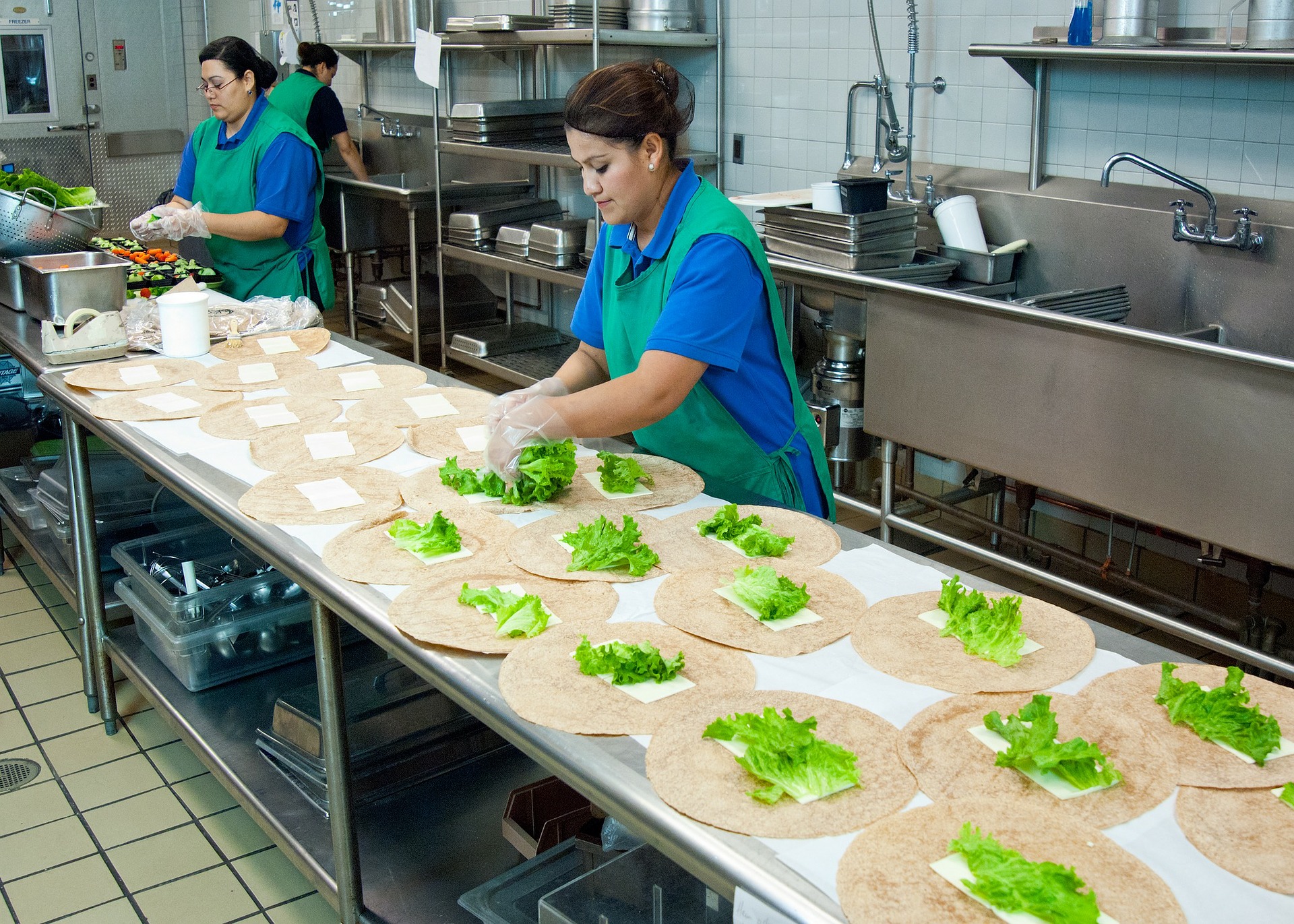In a recent study, the Centers for Disease Control and Prevention (CDC) reported that one in five restaurant employees worked while experiencing vomiting or diarrhea in the previous year. Handling food while sick is one of the most common causes of outbreaks in restaurants. (Charles, 2017) Thus, preventing sick employees from working with or around food should be an important element of any restaurant’s food safety plan.
Why do employees work sick? An NPR study indicates more than half do so because they have to, citing not being able to afford the loss of pay. Employees may even hide symptoms to avoid being sent home. In some cases, employees feel pressure to work sick, as it may be implied that not reporting to work will make the operation suffer and upset management. Employees and managers may feel that working through illness makes them more reliable and ‘valuable,’ when it actually can create serious problems for the operation. Employers may also be concerned that asking employees about their health may be sensitive and conflict with privacy laws, such as HIPAA and ADA. However, these laws do not prevent restaurant managers from asking their employees about health in the interest of food safety.
To avoid spreading foodborne illness from sick employees, managers and employees must work together to establish a workplace culture that recognizes the important role that employee health plays in food safety. Laws established by state departments of health require that employees report symptoms of illness such as:
- Vomiting
- Diarrhea
- Fever with a sore throat
- Jaundice
- Open wound/lesion that is draining
The law also requires employees to report a diagnosis or exposure to person diagnosed with these commonly spread foodborne illnesses:
- Norovirus
- Shigella
- Coli
- Non-typhoidal Salmonella
- Salmonella Typhi
- Hepatitis A
How can managers facilitate open communication about reportable symptoms and illnesses?
- Educate employees on the role their health plays in food safety and the how the impact of working even one day sick, could result in an outbreak.
- Train employees on the symptoms and illnesses that must be reported, and document this training.
- Greet employees daily as they walk in and look and listen for signs of illness.
- Reinforce the policy with signs in employee entrance areas reminding them to report illness and what symptoms to report.
- Encourage employees to prioritize health over working sick and create policies in scheduling, compensation and cross-training that enable coverage due to illness that minimizes burden to the operation and the ill employee.
A well-executed health policy benefits foodservice operations by addressing and preventing a major cause of foodborne illness and creating a healthier work environment for all.
Center for Food Safety and Applied Nutrition. “FDA Food Code.” U S Food and Drug Administration Home Page, Center for Food Safety and Applied Nutrition, 2017, www.fda.gov/food/GuidanceRegulation/retailfoodprotection/foodcode/default.htm.
Charles, Julia, and Taylor Radke. “Discussing Symptoms With Sick Food Service Employees.” Journal of Environmental Health, vol. 80, no. 5, 2017, doi:10.1787/888933145568.
Shallcross, Lynne. “Survey: Half Of Food Workers Go To Work Sick Because They Have To.” NPR, NPR, 19 Oct. 2015, www.npr.org/sections/thesalt/2015/10/19/449213511/survey-half-of-food-workers-go-to-work-sick-because-they-have-to.
Colleen Nyland is a food safety instructor for Foodservice Safe, LLC. She is certified with the Illinois Department of Public Health and through ServSafe. She has been an Adjunct Instructor with Elgin Community College’s Culinary and Hospitality Program since 2009 and has also taught for Northern Illinois University’s Hospitality Administration program since 2005.

